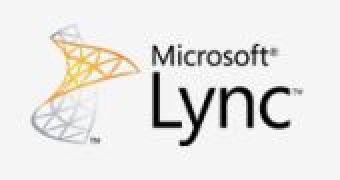As is the case with a range of Microsoft offerings, Lync Server 2010 is not only a new unified communication solution, but also a platform which can be leveraged by developers.
Last week, the launch of Lync Server 2010 and Lync 2010 involved an array of other solutions, including a software development kit for Lync.
At the same time, the software giant is offering devs additional resources beyond the Lync SDK, in order to simplify development for the new platform. Case in point: the UC "14" Developer Training Kit.
The training kit is in fact focused on the SDKs for Lync Server 2010 and Exchange Server 2010, offering as the official label of the download states, training resources designed to allow dev to expand on and build custome unified communications experiences.
“Microsoft Lync Server 2010 and Microsoft Exchange Server 2010 provide the communication platform for developers to rapidly build solutions that integrate and extend communications into their business processes based on familiar tools and skills,” revealed Bruce D. Kyle, ISV Architect Evangelist | Microsoft.
“This Unified Communications “14” Training Kit provides deep technical training on all aspects of the Lync Server 2010 and Exchange Server 2010 SDKs to give developers the skills they need to be productive developing communications driven business processes.”
There are no less than nine modules offered via the training kit for Lync 2010. In this regard, developers will be able to take advantage of not only a presentation, but also a hands-on lab put together by Microsoft.
The Training Kit will enable devs using the SDK to create custom communication experiences on top of the Lync 2010 platform, including by embedding presence and communications into applications.
Kyle added that “this training kit includes the following modules:
1.Getting Started with Microsoft Lync Server 2010 and Exchange Server 2010 Development
2.Integrating Microsoft Lync 2010 Features with the Lync Controls
3.Building Contextual Conversations with the Microsoft Lync 2010 Managed API
4.Building Communications Clients with the Lync 2010 Managed API
5.Web Services Managed API 1.0
6.Getting Started with Unified Communications Managed API 3.0
7.Building Communications Workflows with UCMA 3.0 Workflow SDK
8.Building Advanced Communications Solutions with UCMA 3.0
9.Lync Server 2010 and Exchange Server 2010: Architecture and Deployment.”

 14 DAY TRIAL //
14 DAY TRIAL //